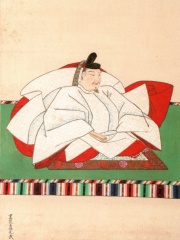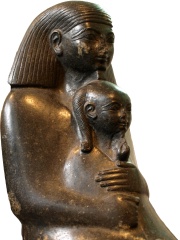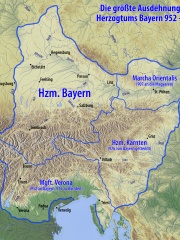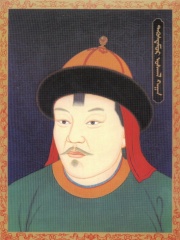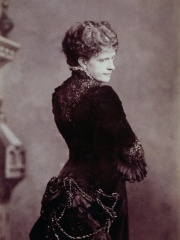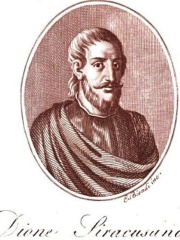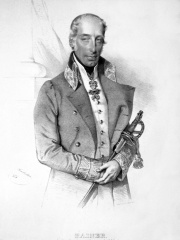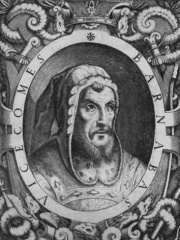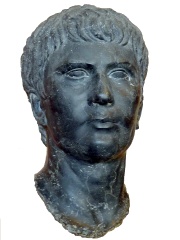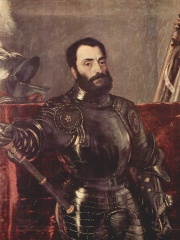Politician
Julia Flavia
64 - 91
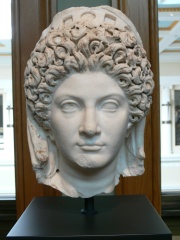
 Julia Flavia
Julia Flavia
Julia Flavia (c. 63 – 91) or Flavia Julia, nicknamed Julia Titi, was the daughter of Roman Emperor Titus and his first wife Arrecina Tertulla. Julia Titi gained the title Augusta at her father's accession in 79. Read more on Wikipedia
Her biography is available in 22 different languages on Wikipedia. Julia Flavia is the 4,708th most popular politician (up from 5,118th in 2024), the 1,343rd most popular biography from Italy (up from 1,492nd in 2019) and the 313th most popular Italian Politician.
Memorability Metrics
Page views of Julia Flavia by language
Among Politicians
Among politicians, Julia Flavia ranks 4,708 out of 19,576. Before her are Emperor Go-Tsuchimikado, Muhammadu Buhari, Fernando Lugo, Emperor Senka, Emperor Yūryaku, and Neferure. After her are Giovanni Gronchi, Amintore Fanfani, Micheline Calmy-Rey, José Luis Rodríguez Zapatero, Arnulf, Duke of Bavaria, and Uskhal Khan Tögüs Temür.
Most Popular Politicians in Wikipedia
Go to all RankingsEmperor Go-Tsuchimikado
1442 - 1500
HPI: 66.96
Rank: 4,704
Muhammadu Buhari
1942 - 2025
HPI: 66.95
Rank: 4,705
Fernando Lugo
1951 - Present
HPI: 66.95
Rank: 4,706
Emperor Senka
467 - 539
HPI: 66.95
Rank: 4,707
Emperor Yūryaku
418 - 479
HPI: 66.95
Rank: 4,708
Neferure
1500 BC - 1500 BC
HPI: 66.95
Rank: 4,709
Julia Flavia
64 - 91
HPI: 66.94
Rank: 4,710
Giovanni Gronchi
1887 - 1978
HPI: 66.94
Rank: 4,711
Amintore Fanfani
1908 - 1999
HPI: 66.94
Rank: 4,712
Micheline Calmy-Rey
1945 - Present
HPI: 66.94
Rank: 4,713
José Luis Rodríguez Zapatero
1960 - Present
HPI: 66.94
Rank: 4,714
Arnulf, Duke of Bavaria
885 - 937
HPI: 66.94
Rank: 4,715
Uskhal Khan Tögüs Temür
1342 - 1388
HPI: 66.93
Rank: 4,716
Contemporaries
Among people born in 64, Julia Flavia ranks 1. After her is Philo of Byblos. Among people deceased in 91, Julia Flavia ranks 1.
Others Born in 64
Go to all RankingsOthers Deceased in 91
Go to all RankingsIn Italy
Among people born in Italy, Julia Flavia ranks 1,343 out of 5,161. Before her are Simon of Sicily (1093), Verres (-120), Renata Scotto (1934), Maria Pia of Savoy (1847), Giovanni Domenico Tiepolo (1727), and Asconius Pedianus (-9). After her are Giovanni Gronchi (1887), Amintore Fanfani (1908), Piero Manzoni (1933), Dion of Syracuse (-409), Luigi Tenco (1938), and Gianni Morandi (1944).
Others born in Italy
Go to all RankingsSimon of Sicily
1093 - 1105
HPI: 66.98
Rank: 1,337
Verres
POLITICIAN
120 BC - 43 BC
HPI: 66.98
Rank: 1,338
Renata Scotto
SINGER
1934 - 2023
HPI: 66.98
Rank: 1,339
Maria Pia of Savoy
POLITICIAN
1847 - 1911
HPI: 66.97
Rank: 1,340
Giovanni Domenico Tiepolo
PAINTER
1727 - 1804
HPI: 66.96
Rank: 1,341
Asconius Pedianus
WRITER
9 BC - 76
HPI: 66.94
Rank: 1,342
Julia Flavia
POLITICIAN
64 - 91
HPI: 66.94
Rank: 1,343
Giovanni Gronchi
POLITICIAN
1887 - 1978
HPI: 66.94
Rank: 1,344
Amintore Fanfani
POLITICIAN
1908 - 1999
HPI: 66.94
Rank: 1,345
Piero Manzoni
PAINTER
1933 - 1963
HPI: 66.93
Rank: 1,346
Dion of Syracuse
POLITICIAN
409 BC - 354 BC
HPI: 66.92
Rank: 1,347
Luigi Tenco
MUSICIAN
1938 - 1967
HPI: 66.91
Rank: 1,348
Gianni Morandi
SINGER
1944 - Present
HPI: 66.91
Rank: 1,349
Among Politicians In Italy
Among politicians born in Italy, Julia Flavia ranks 313. Before her are Archduke Rainer Joseph of Austria (1783), Giuseppe Conte (1964), Bernabò Visconti (1323), Agrippa Postumus (-12), Verres (-120), and Maria Pia of Savoy (1847). After her are Giovanni Gronchi (1887), Amintore Fanfani (1908), Dion of Syracuse (-409), Naevius Sutorius Macro (-21), Thomas Francis, Prince of Carignano (1596), and Francesco Maria I della Rovere, Duke of Urbino (1490).
Archduke Rainer Joseph of Austria
1783 - 1853
HPI: 67.04
Rank: 307
Giuseppe Conte
1964 - Present
HPI: 67.03
Rank: 308
Bernabò Visconti
1323 - 1385
HPI: 67.03
Rank: 309
Agrippa Postumus
12 BC - 14
HPI: 66.99
Rank: 310
Verres
120 BC - 43 BC
HPI: 66.98
Rank: 311
Maria Pia of Savoy
1847 - 1911
HPI: 66.97
Rank: 312
Julia Flavia
64 - 91
HPI: 66.94
Rank: 313
Giovanni Gronchi
1887 - 1978
HPI: 66.94
Rank: 314
Amintore Fanfani
1908 - 1999
HPI: 66.94
Rank: 315
Dion of Syracuse
409 BC - 354 BC
HPI: 66.92
Rank: 316
Naevius Sutorius Macro
21 BC - 38
HPI: 66.90
Rank: 317
Thomas Francis, Prince of Carignano
1596 - 1656
HPI: 66.85
Rank: 318
Francesco Maria I della Rovere, Duke of Urbino
1490 - 1538
HPI: 66.85
Rank: 319
